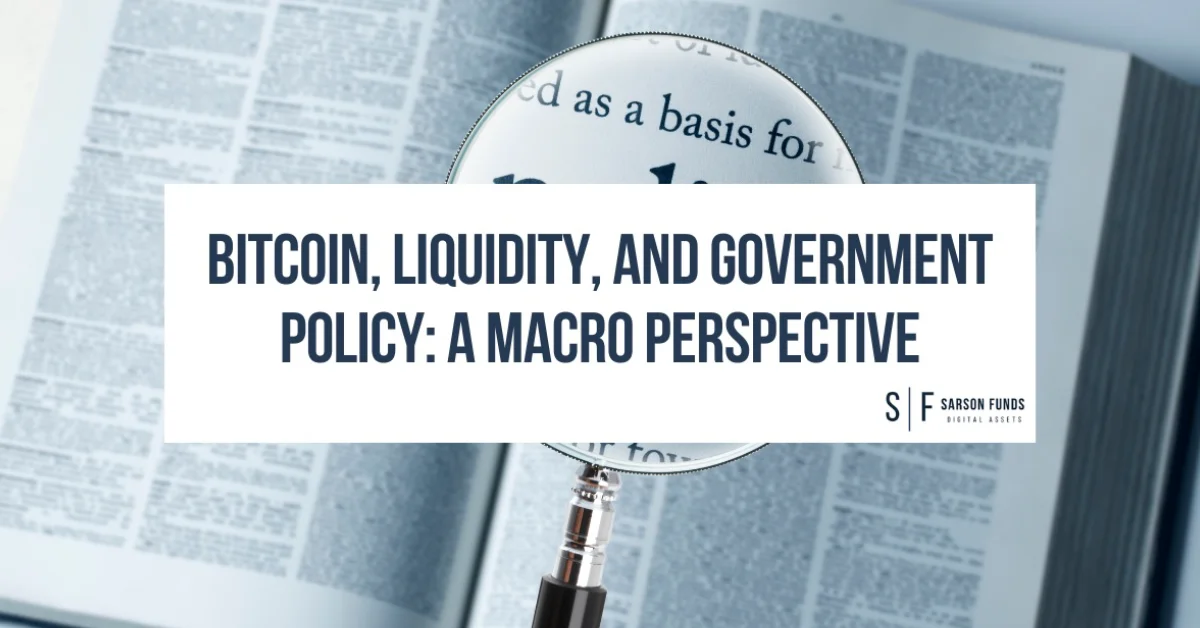
Bitcoin’s role in the global financial system is evolving at a rapid pace, shaped by liquidity cycles, fiscal policy, and accelerating institutional adoption. As governments grapple with mounting deficits and inflationary pressures, a growing number of investors are turning to Bitcoin as a hedge against systemic financial risk.
In this article, we examine the relationship between Bitcoin liquidity and fiscal policy, explore how fiscal dominance may influence crypto markets, and consider the potential implications of increased government involvement in the digital asset space.
The Growing Importance of Liquidity in Bitcoin’s Market Cycles
While Bitcoin has traditionally followed a four-year cycle shaped by halving events, its behavior is evolving. With rising institutional adoption and deeper integration into traditional financial markets, Bitcoin’s price movements are increasingly influenced by global liquidity conditions and fiscal policy. When central banks expand liquidity through quantitative easing or fiscal stimulus Bitcoin often sees upward momentum. In contrast, periods of tightening liquidity tend to coincide with price corrections, highlighting Bitcoin’s growing sensitivity to macroeconomic forces.
Fiscal Policy and Inflation: Core Drivers of Market Trends
Inflation is no longer solely a function of central bank actions it’s increasingly being driven by government spending. This shift reflects the growing influence of fiscal dominance, where large and persistent budget deficits limit the effectiveness of monetary policy. Even as interest rates rise, inflation can remain stubborn due to continued fiscal expansion.
For Bitcoin, this creates a unique dynamic. While tightening monetary policy typically weighs on risk assets, sustained fiscal imbalances may enhance Bitcoin’s appeal as a hedge against long-term currency debasement. In this context, analyzing the relationship between fiscal policy and Bitcoin liquidity becomes essential to understanding the asset’s evolving role in global markets.
Spot Bitcoin ETFs: Bridging Crypto and Traditional Finance
The launch of spot Bitcoin ETFs has deepened Bitcoin’s integration into traditional financial markets. While this development has broadened access and accelerated institutional adoption, it has also increased Bitcoin’s correlation with equities and bonds. As Bitcoin becomes more widely adopted, its historical independence from traditional asset classes may continue to fade particularly during periods of elevated market volatility or broader macroeconomic stress.
Government Deficits and the Future of Bitcoin
As government deficits climb, speculation is mounting over how the US government may engage with Bitcoin. Some view it as a potential strategic reserve asset, while others foresee tighter regulation as the more probable path. Either way, the evolving macroeconomic landscape ensures that Bitcoin’s relationship with liquidity and fiscal policy will remain central to broader conversations around monetary policy, financial stability, and the future of global finance.
Investment Considerations for the Future
Given Bitcoin’s sensitivity to liquidity conditions and fiscal policy, a long-term investment perspective is essential. Instead of reacting to short-term volatility, many investors monitor broader macroeconomic trends to better understand Bitcoin’s long-term potential.
As governments grapple with rising debt and persistent inflation, Bitcoin is increasingly viewed by some as a non-sovereign, decentralized store of value, particularly in the context of rising debt and inflation.
Conclusion
Bitcoin’s transformation from a niche digital asset to a globally recognized store of value highlights its increasing relevance in the broader macroeconomic landscape. As liquidity cycles evolve, fiscal policies shift, and institutional adoption accelerates, a clearer understanding of Bitcoin’s macroeconomic drivers may provide useful context for those analyzing its role in today’s markets.
Disclosures: This article is for informational purposes only and should not be considered financial, legal, tax, or investment advice. It provides general information on cryptocurrency without accounting for individual circumstances. Sarson Funds, Inc. does not offer legal, tax, or accounting advice. Readers should consult qualified professionals before making any financial decisions. Cryptocurrency investments are volatile and carry significant risk, including potential loss of principal. Past performance is not indicative of future results. The views expressed are those of the author and do not necessarily reflect those of Sarson Funds, Inc. By using this information, you agree that Sarson Funds, Inc. is not liable for any losses or damages resulting from its use.









